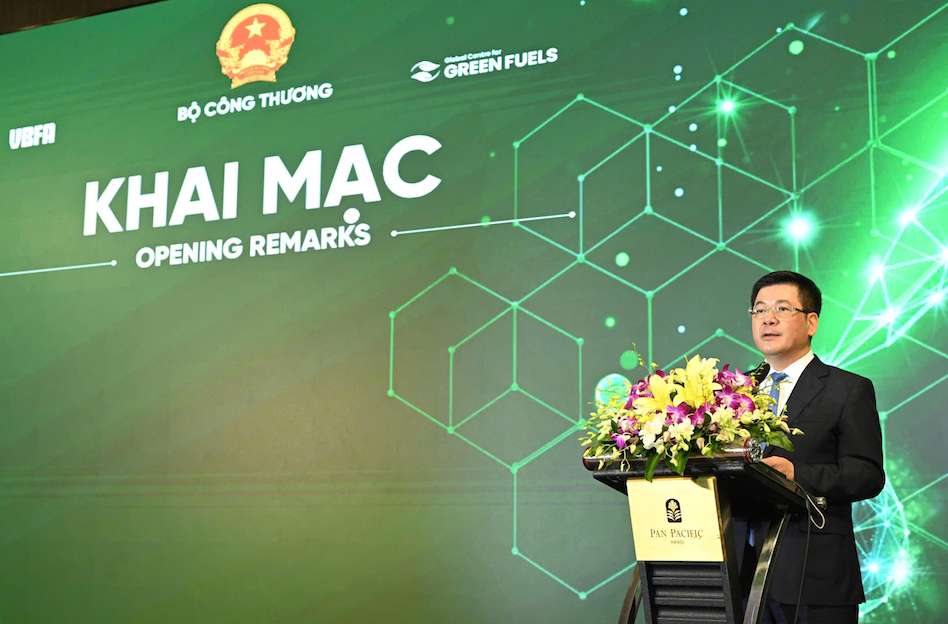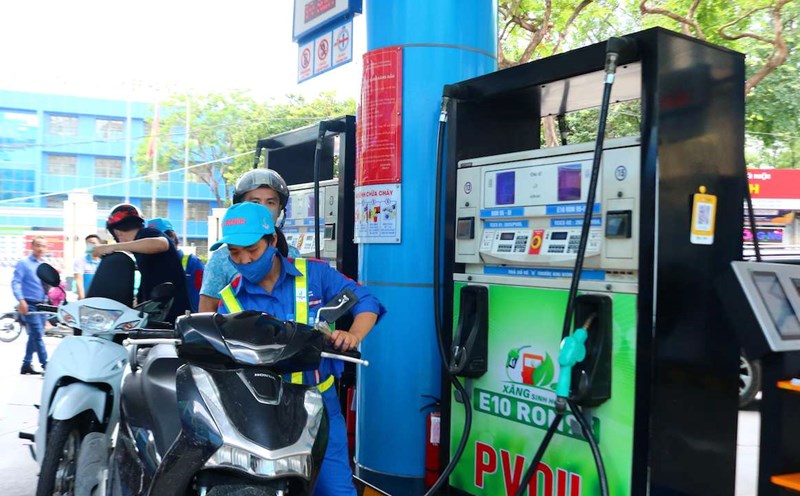This is information at the International Conference on biofuel in Vietnam in 2025 with the theme "Developing biofuel in the new era - Key tasks to create a sustainable fuel future for Vietnam" organized by the Ministry of Industry and Trade in coordination with the Global Green Fuel Center and the Vietnam biofuel Association on August 27.

Domestic biofuel production capacity is still limited
In his opening speech, Minister Nguyen Hong Dien emphasized that energy conversion towards green and clean is an inevitable trend on a global scale. In that trend, biofuel, especially E10 gasoline, is considered one of the strategic solutions, contributing to reducing greenhouse gas emissions, enhancing the value of the agricultural sector, promoting the development of the green energy industry, while ensuring national energy security.
"E10 gasoline has begun to be piloted in some major cities (such as Hanoi, Ho Chi Minh City, Hai Phong) and has initially recorded positive interest from consumers. Key enterprises such as Petrolimex, PVOIL, Saigon Petro ... are ready for coordination and distribution infrastructure, ensuring synchronous supply of E10 gasoline from January 1, 2026 nationwide" - the Minister said.
However, to realize the goal of developing biofuels to completely replace petroleum, Minister Nguyen Hong Dien said that Vietnam needs to overcome major challenges in technology, policies and markets. At the same time, domestic biofuel production capacity is still limited (currently only meeting about 40% of demand, the rest must be imported from the US, Brazil and international partners).
"This poses an urgent need to expand raw material areas, increase production capacity for sithanol, and at the same time build strong and feasible mechanisms and policies to encourage production, import and reserve biofuel strategies" - the Minister emphasized.
Consumer psychology is the biggest difficulty
Speaking at the Workshop, Dr. Dao Duy Anh - Deputy Director of the Department of Innovation, Green Transformation and Industrial Promotion (Ministry of Industry and Trade) said that Vietnam has been implementing biofuel for more than a decade according to Decision 53/2012/QD-TTg.
According to the roadmap, Vietnam has applied 100% of E5 since 2017, preparing to switch to 100% of E10 from 2026, and plans to consider using E15 - E20 by 2030, depending on socio-economic development conditions, energy security as well as production capacity of ethanol.
According to Dr. Dao Duy Anh, up to now, the management, production and trading system of biofuel has been formed, with the participation of the Ministry of Industry and Trade, ministries, local People's Committees, key enterprises and Pethanol factories. The main raw materials for ethanol are currently domestic cassava and imported corn. The country has 7 ethanol production projects, but only 2 factories are operating at about 50% of the designed capacity.
"One of the biggest difficulties in developing and consuming biofuel today is consumer psychology. Many people are still concerned about the quality of this fuel, especially when used for new-age vehicles, motorbikes and luxury cars" - Dr. Dao Duy Anh admitted.
Currently, the difference in selling price between E5 RON92 and RON95 gasoline only ranges from 400 to 800 VND/liter, the reduction is not attractive enough to encourage people to switch to use. In terms of policy, financial mechanisms, tax incentives and credit support for biofuel are still limited, not creating strong motivation for businesses and consumers.
In particular, there has not been a widespread, unified communication campaign to provide accurate information about the features and safety of E5 and E10, causing many misunderstandings and reservations about choosing this type of fuel.











